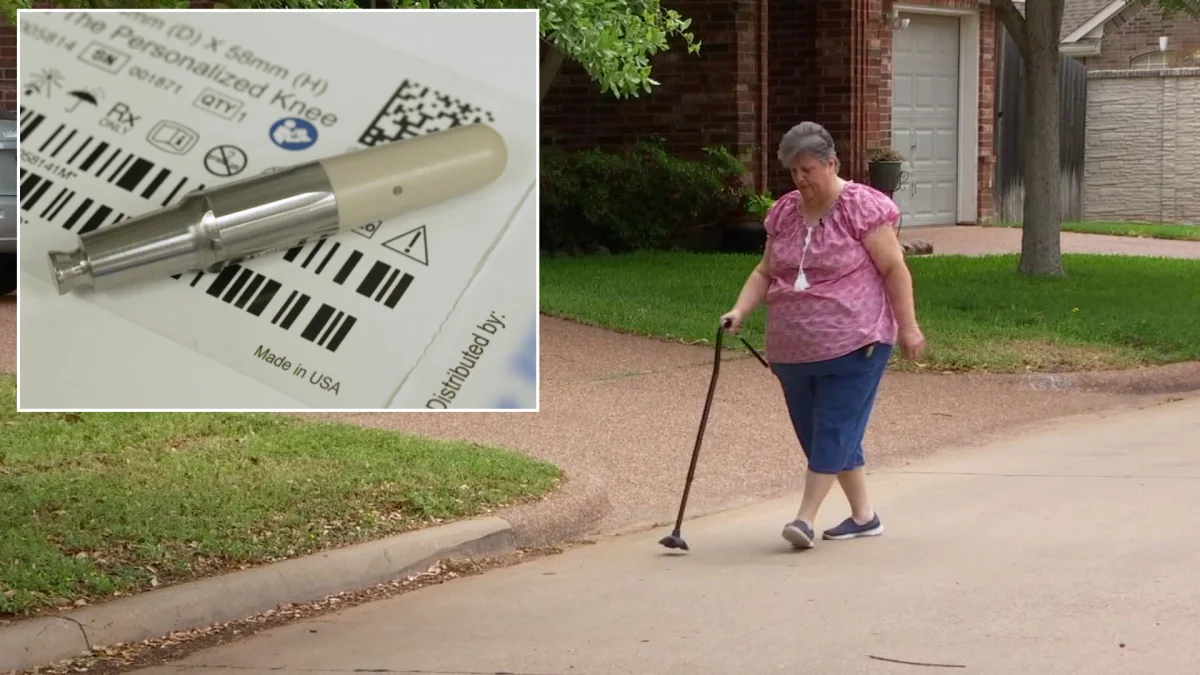An Arlington resident has become the first person in Texas to receive a “smart knee” in lieu of total knee replacement surgery.
Lisa Herrick of Arlington said it feels good to be the first Texan to obtain the knee device.
“The smart implant is an implant that communicates with the outside world, just like our smartphones or smartwatches, and even smart coffee mugs these days,” said Dr. Om Patel of Baylor Scott & White in Frisco.
The Bluetooth-enabled sensor technology detects gait metrics such as range of motion, step count, and walking speed. The data is then securely transmitted to a HIPAA-compliant cloud-based platform, where the patient and surgeon can both access it.
“The surgeon has full capability of watching the patient to ensure that there’s nothing happening in the background that we’re missing,” said Patel. “If so, then we will get red flags or alerts that maybe this person needs a little bit of extra attention, maybe something is going wrong that we can check into.”
The device, made by Persona IQ, is the world’s first and only smart knee implant to receive de novo classification by the Food and Drug Administration (FDA), according to NBC DFW. To be granted the de novo classification, a device must be the only one of its kind on the market and pose no more than a low-to-moderate risk.
Cleveland Clinic reports that nearly 800,000 knee replacements are performed in the United States annually. Modern technology like the smart knee assists patients and doctors with the lengthy and difficult recovery process.
According to an article published by the National Institutes of Health, the benefits of smart implants include avoiding costly complications, lowering recuperation times, reducing lost workdays following surgery, and reducing readmissions and revision operations.
The article, originally published in the medical journal Innovation and Entrepreneurship in Health, asserts that the widespread use of smart implants is on the horizon, thanks to constantly expanding technology. However, it notes that integrating smart implants into daily clinical practice will require new sensor technology that minimizes the alterations to existing implants.






